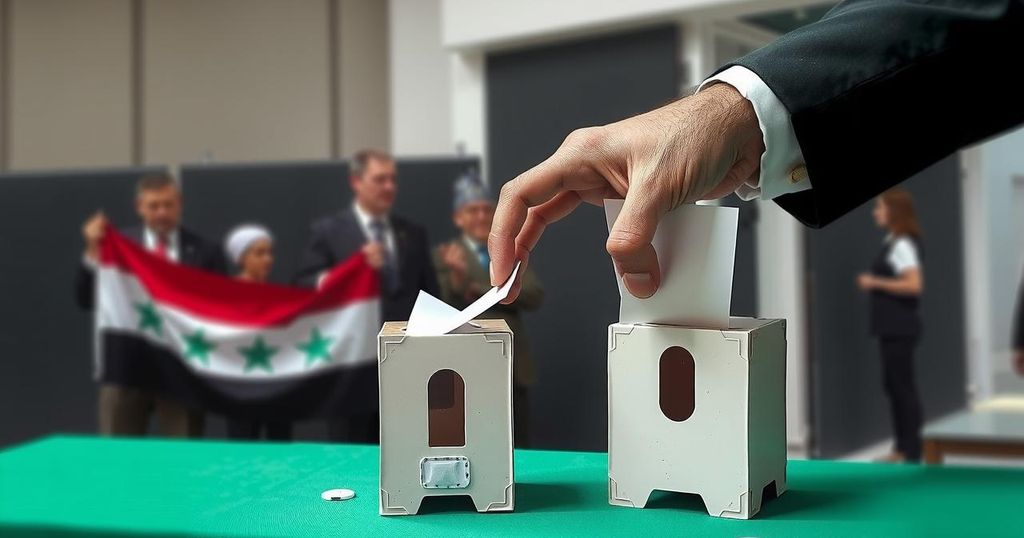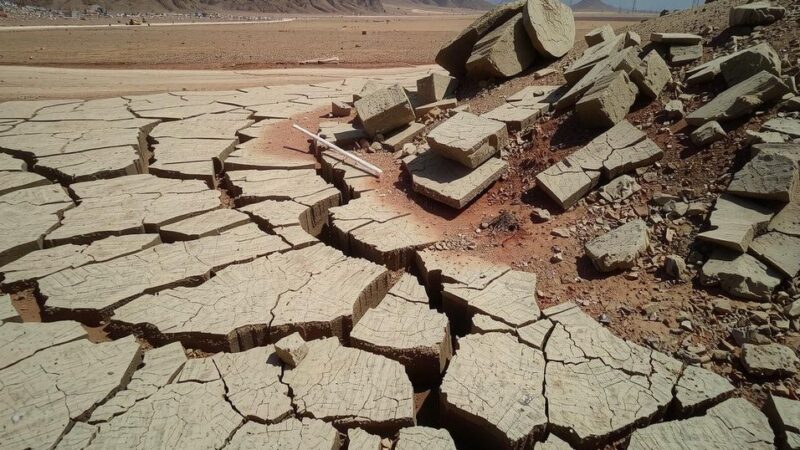Syria’s de facto leader, Ahmed al-Sharaa, indicated that elections might take up to four years as a new census is required. He suggested that drafting a new constitution could extend to three years and expressed optimism about potential changes in Syria within a year. He reassured regional allies of Syria’s stability and highlighted the strategic relationship with Russia.
In a recent statement, Syria’s de facto leader, Ahmed al-Sharaa, outlined a potential timeline for holding elections in the conflict-ridden nation, suggesting it may take as long as four years. This marks al-Sharaa’s first public comment on the electoral process following the recent ousting of Bashar al-Assad. He explained that a new census, essential for determining the number of eligible voters, must be conducted before any meaningful elections can occur. Additionally, al-Sharaa noted that drafting a new constitution could take an estimated three years.
Al-Sharaa expressed optimism about improvements in Syria within the next year, indicating that the dominant military group, Hayat Tahrir al-Sham, would be dissolved during a national dialogue conference. His remarks aim to foster confidence among regional neighbors about Syria’s stability. He asserted, “Syria will not be a source of disturbance to anyone,” emphasizing his government’s commitment to peace.
Furthermore, al-Sharaa highlighted the strategic partnership between Syria and Russia, a key ally during the civil conflict. Discussions regarding the status of Russian military bases in Syria are underway, with Russian diplomats addressing their operational conditions moving forward. Al-Sharaa also expressed hope that the incoming U.S. administration under President-elect Donald Trump would reconsider the economic sanctions imposed on Syria.
The ongoing civil war in Syria has led to significant political shifts, particularly following the recent ousting of Bashar al-Assad. Ahmed al-Sharaa, leading the most dominant opposition faction, Hayat Tahrir al-Sham, is now taking steps toward establishing a government framework that includes electoral processes. The future of governance in Syria hinges on various factors, including the completion of a new census and dialogue among competing factions, all while maintaining international relationships, particularly with powerful allies such as Russia and the United States.
In conclusion, Ahmed al-Sharaa’s comments signal a pivotal moment for Syria as it seeks to transition from years of conflict to a semblance of governance and order. While his outlined timelines for a census and elections provide a framework for political progress, the actual realization of these goals remains contingent upon various internal and external factors. The commitment to not be a source of disturbance and the emphasis on international partnerships reflect a cautious yet hopeful approach towards the future of Syria.
Original Source: www.aljazeera.com






